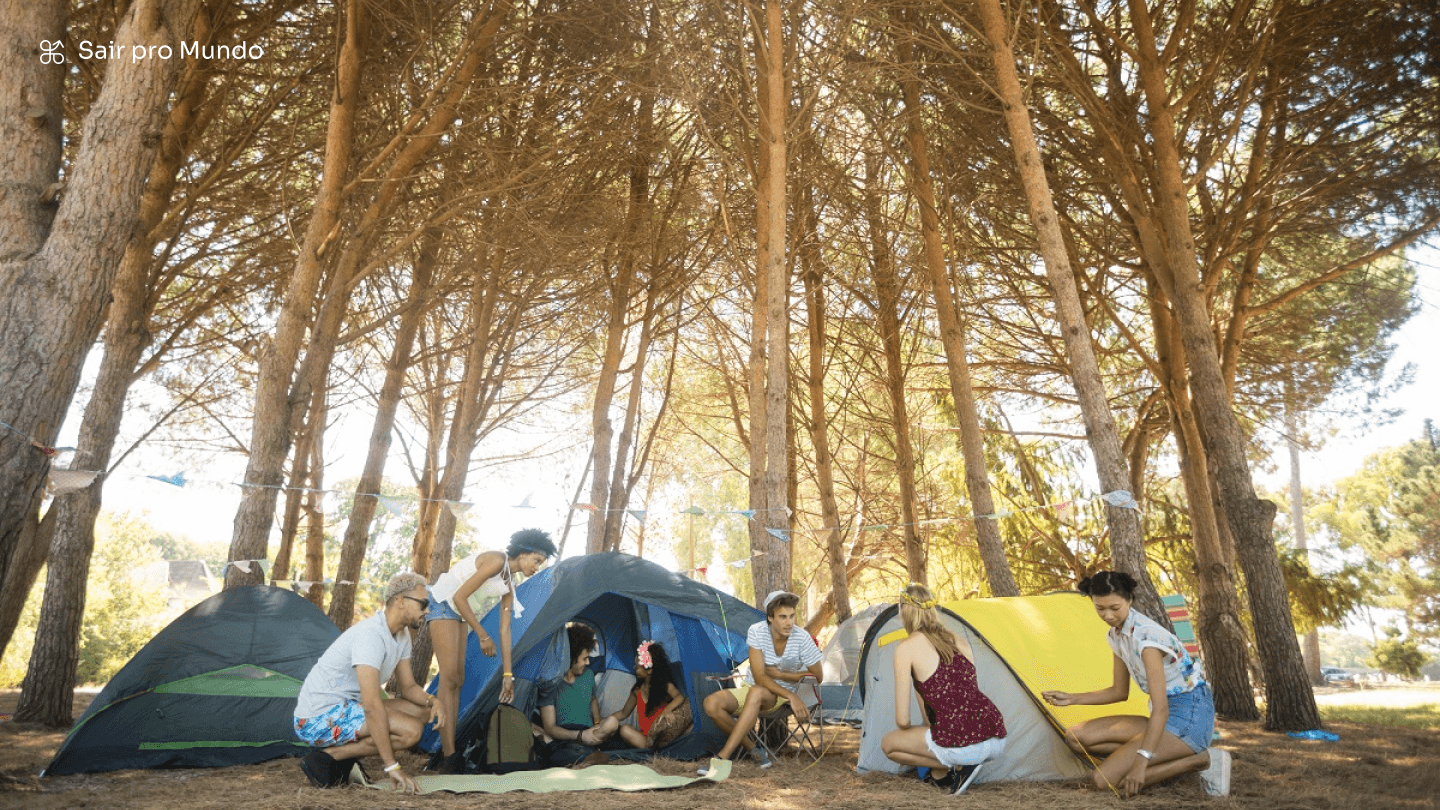3 super important tips for those who are going camping

Camping is one of the most amazing ways to reconnect with nature, relax, and enjoy unique adventures. Whether you're a beginner or an experienced camper, following some essential tips can transform your experience, making it safer, more comfortable, and unforgettable. In this article, we’ll share three fundamental pillars for a successful camping trip: choosing the right location, planning your gear, and respecting the environment. With these guidelines, you’ll be ready to make the most of every outdoor moment.
1. Choose the Perfect Camping Spot
Selecting the right camping spot is the first step to ensuring a good experience. The location can impact your safety and comfort. Here are some important considerations:
- Research ahead of time: Before packing your backpack, research the available spots. Regulated areas like national parks or authorized campgrounds are great options for infrastructure and safety.
- Consider your experience level: If you’re a beginner, look for places with basic amenities such as bathrooms, showers, and cooking areas. Remote locations are better suited for seasoned campers but may bring additional challenges.
- Check the weather and season: Always review the weather forecast before heading out. Strong winds, rain, or extreme temperatures can make your trip difficult or even dangerous.
- Avoid risky areas: While riverside spots may seem inviting, they carry a risk of flooding. Also, steer clear of unstable slopes and areas known for dangerous wildlife.
- Read reviews and accounts: There are plenty of platforms and forums where campers share their experiences. These insights can help you pick the perfect spot.
A careful choice of location lays the foundation for a peaceful and memorable experience, allowing you to enjoy the natural beauty without worry.
2. Plan the Essentials to Pack
Proper planning is key to a comfortable camping trip. Packing the right items can prevent discomfort, ensure your safety, and make everything more practical. Here’s what you shouldn’t forget:
Tent and Sleeping Gear
- Quality tent: Choose a weather-resistant tent suitable for the region, with enough space for all occupants and easy to set up.
- Sleeping bag: A sleeping bag rated for the location’s temperature is essential for cozy nights.
- Sleeping pad: Placed between the sleeping bag and the ground, it helps maintain body heat.
Lighting Essentials
- Flashlights: Bring handheld and headlamps for nighttime movement.
- Extra batteries: Ensure you have spare batteries for your flashlights and other devices.
Food and Cooking
- Convenient foods: Granola bars, dried fruits, canned goods, and instant noodles are great options.
- Portable stove: Bring a small stove for meal preparation. Don’t forget the fuel.
- Utensils: Include a knife, cutlery, reusable plates, and a small pot.
First Aid Kit
- Basic items: Bandages, gauze, antiseptic, scissors, and disposable gloves.
- Medications: Include painkillers, anti-inflammatories, and any regular medications you may need.
Other Important Items
- Appropriate clothing: Wear lightweight clothes during the day and extra layers for the night. Include waterproof items and a hat or cap.
- Insect repellent: Essential to avoid bites, especially in tropical regions.
- Sunscreen: Even on cloudy days, protect your skin from UV rays.
With these items, you’ll be prepared to face any challenge and enjoy your time outdoors with more comfort and safety.
3. Respect and Preserve the Environment
Camping is a chance to connect with nature, but it’s crucial to do so responsibly. Preserving the environment ensures that others can also enjoy its beauty in the future. Here are some sustainable practices:
- Take all your trash: Bring bags to store your waste and take it back with you for proper disposal.
- Avoid excessive noise: Respect the area’s tranquility and fellow campers.
- Be cautious with campfires: If allowed, only set up campfires in safe areas and make sure they’re completely out before leaving.
- Respect wildlife and plants: Don’t feed wild animals or pick plants and flowers.
- Stick to marked trails: When exploring, follow established paths to avoid damaging the ecosystem.
- Avoid water contamination: Don’t wash utensils or dump waste in rivers or lakes.
By adopting these practices, you help protect the environment and promote sustainable tourism, benefiting everyone.
Conclusion
Camping is more than just a trip; it’s a transformative experience that offers rest, adventure, and a unique connection with nature. With these three tips – choosing the ideal location, planning essential items, and respecting the environment – you’ll be ready to enjoy everything camping has to offer.
Always plan ahead, prepare for unexpected situations, and, above all, respect natural spaces. This way, you’ll have a safe adventure filled with unforgettable moments.
Now that you know how to get ready, why not start planning your next adventure? Nature is waiting for you!
About the author
Editorial Team